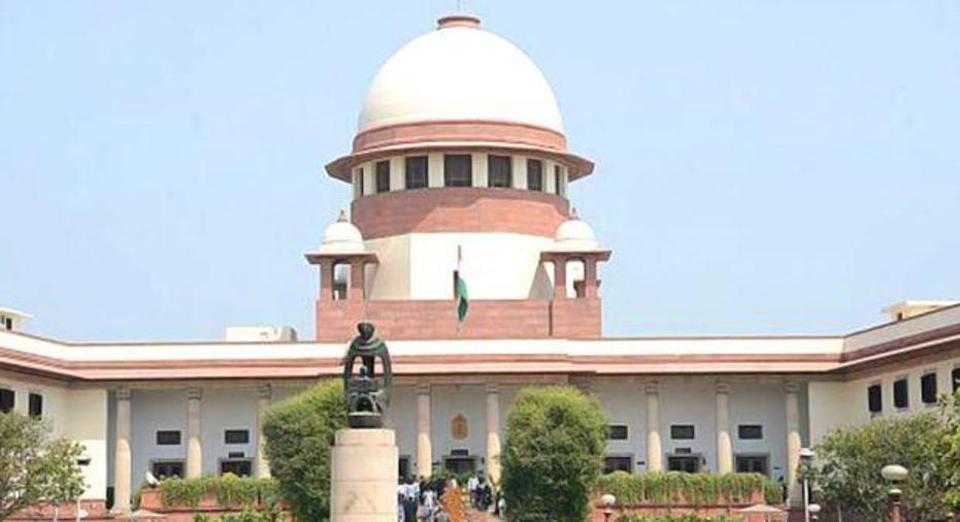Right to privacy case is a fundamental right: Two judgments that Supreme Court overruled

The Supreme Court of India overruled its two earlier verdicts and passed a judgment that Right to Privacy is a fundamental right and is protected under the Constitution. The landmark verdict was passed unanimously by a nine-judge Constitution bench which held that privacy was intrinsic to freedom of life and personal liberty which is guaranteed under Article 21 of the Constitution.
New Delhi / The Supreme Court of India on Thursday overruled its two earlier verdicts and passed a judgment that Right to Privacy is a fundamental right and is protected under the Constitution. The landmark verdict was passed unanimously by a nine-judge Constitution bench which held that privacy was intrinsic to freedom of life and personal liberty which is guaranteed under Article 21 of the Constitution.
A nine-judge Constitution Bench headed by Chief Justice of India JS Khehar and comprising Justices J Chelameswar, S A Bobde, R K Agrawal, R F Nariman, A M Sapre, D Y Chandrachud, S K Kaul and S Abdul Nazeer gave the verdict. The apex court has in the past ruled against right to privacy being a fundamental right. We revisit the two cases decided in 1954 and 1962.
M P Sharma & Others vs Satish Chandra, District Magistrate, Delhi & Others
March 15, 1954
The case arose from a previous search and seizure operation carried out against the companies of Dalmia Group. The investigations related to the affairs of Ms Dalmia Jain Airways Ltd. The company was registered in 1946 but it went into liquidation in June 1952. The basis of the investigation were allegations of malpractices within the group concern and attempts of presenting false accounts and balance sheets to hide the prevailing state of affairs in the company from its shareholders. The law enforcement agencies approached the District Magistrate, Delhi on the basis of an FIR filed on November 19, 1953 to secure search warrants.
Warrants were issued for search and seizure raids to be carried out at 34 locations that belonged to the Dalmia Group. A large amount of documents and records were seized in the raids. The petitioners file writ petitions before the Supreme Court challenging the constitutional validity of the searches.They claimed that the search parties took away their private records and that it was in violation of Fundamental Rights guaranteed under Article 19(1)(f) of the Constitution that guarantees Right to acquire, hold and dispose of property and Article 20(3) that provides protection against self incrimination.
An eight-judge bench of the apex court comprising Chief Justice Mehar Chand Mahajan and Justices B Jagannadhadas, Ghulam Hasan, Natwarlal H Bhagwati, T L Venkatarama Aiyyar, B K Mukherjea, Sudhi Ranjan Das and Vivian Bose passed a judgment on March 15, 1954. The court held that “a power of search and seizure is, in any system of jurisprudence, an overriding power of the State for the protection of social security and that power is necessarily regulated by law. When the Constitution makers have thought fit not to subject such regulation to constitutional limitations by recognition of the fundamental right to privacy, analogous to the American Fourth Amendment, there is no justification for importing into it, a totally different fundamental right by some process of strained construction.”
Kharak Singh vs The State of U.P. & Others
December 18, 1962
Kharak Singh, the petitioner in the case, was challenged in a dacoity case but later released in absence of evidence. The Uttar Pradesh police opened a “history sheet” against Kharak Singh and he was put under surveillance. The power to put a person under surveillance was provided under Chapter XX of the Uttar Pradesh Police Regulations. According to Regulation 236 that defines surveillance, surveillance involved “secret picketing of the house or approaches to the houses of the suspects; domiciliary visits at night; periodical enquiries by officers not below the rank of Sub-Inspector into repute, habits, association, income, expenses and occupation; the reporting by constables and chaukidars of movements and absences from home; the verification of movements and absences by means of inquiry slips; and the collection and record on a history sheet of all information bearing on conduct.”
Kharak Singh filed a writ petition in the Supreme Court of India challenging the constitutional validity of Chapter XX of the Uttar Pradesh Police Regulations and the powers conferred upon police officials by its several provisions on the ground that they violate the right guaranteed to citizens by Arts. 19(1)(d) and 21 of the Constitution.
A six-judge bench comprising then Chief Justice Bhuvaneshwar P Sinha and Justices N Rajagopala Ayyangar, Syed Jaffer Imam, K Subbarao, JC Shah and JR Mudholkar passed the judgment on the petition on December 18, 1962.
In its judgment, the court invalidated the Clause (b) of the Regulation 236 relating to surveillance (domiciliary visits at night) upholding the other five clauses. More significantly, the court held that “the right to privacy is not a guaranteed right under our Constitution, and therefore the attempt to ascertain the movements of an individual is merely a manner in which privacy is invaded and is not an infringement of a fundamental right guaranteed in Part III,” adding that “Having given the matter our best consideration we are clearly of the opinion that the freedom guaranteed by Art. 19 (1) (d) is not infringed by a watch being kept over the movements of the suspect.”